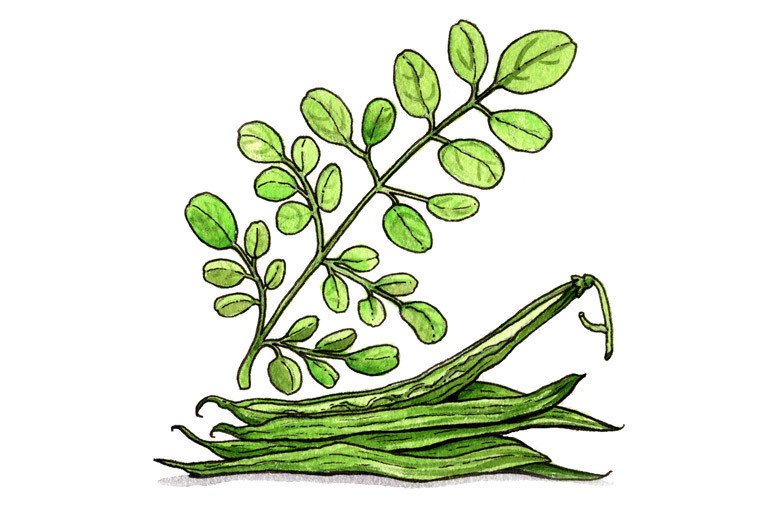Moringa oleifera (MO) is an edible plant that is native to Asia and Africa but is cultivated around the world. The leaves and the seed pods are nutritious and widely consumed as food; the bark and the root are thought to have medicinal properties and are used in folk remedies. Products derived from the herb are used to treat a variety of conditions, including asthma, diabetes, ulcers, infections and cancer. Extracts from the plant are used in primitive water filtration systems to remove harmful pollutants and algae
(1).
In vitro and animal studies indicate that the leaf, seed, and root extracts of MO have anticancer
(3)(4), hepatoprotective
(10), hypoglycemic
(12), anti-inflammatory
(13)(14), antibacterial
(18)(19), antifungal
(20), antiviral
(21), and antisickling
(37) effects. They may also protect against Alzheimer’s disease
(29) , stomach ulcers
(24), help lower cholesterol levels
(25), and promote wound healing
(30). In addition, MO extract has demonstrated antifertility effects
(28). Only a few studies of inadequate design and/or small number have been conducted in humans
(36). In one of these studies, MO did exhibit a positive but small effect on lipid profiles
(38) .
MO inhibits CYP450 enzymes and may interact with prescription drugs.


No comments:
Post a Comment